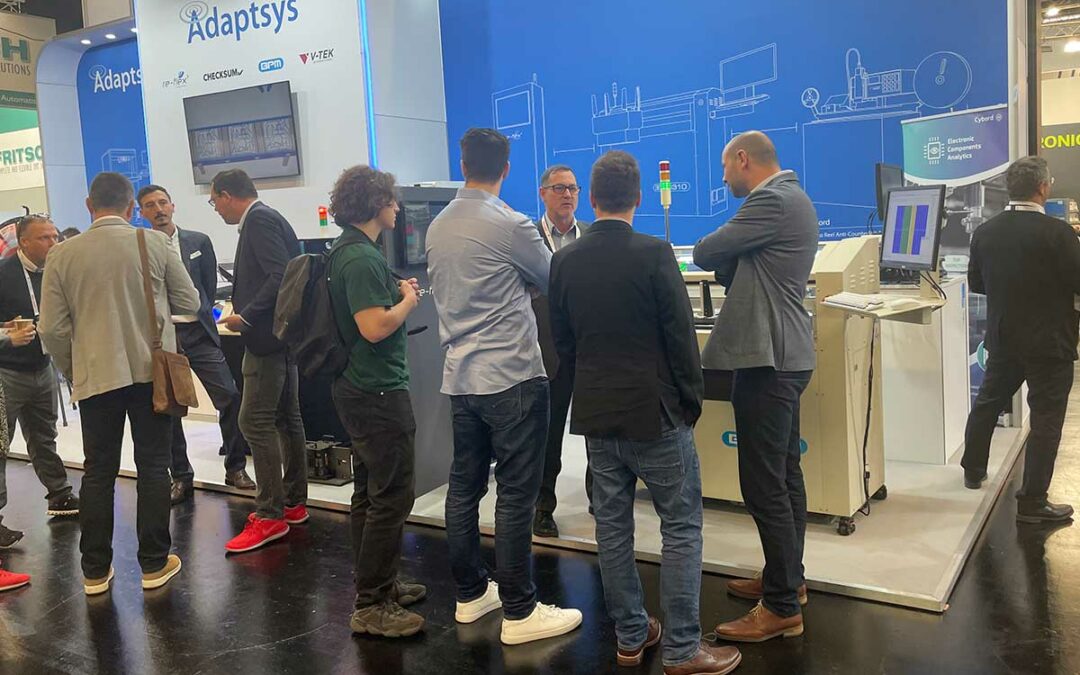
by Scott Bronstad | May 9, 2023 | Events, News, Trade Shows
SMTconnect, Europe’s singular event dedicated to the development, production, service, and application of microelectronic assemblies and systems, is gathering a diverse community of engineers, technologists, and microelectronics enthusiasts in Nuremberg, Germany. The event serves as a thriving platform for the exchange of innovative ideas, fostering collaboration and evolution within the microelectronics ecosystem.
Among the major participants at this year’s event is BPM Microsystems, along with their EU Partner, Adaptsys. They are presenting the BPM310, their latest generation Automated Programmer, which embodies significant advancements in device programming technology. Engineers, industry insiders, and all interested parties are encouraged to experience the BPM310 firsthand at Hall 4, Stand 147.
BPM310: Redefining Automated Programming
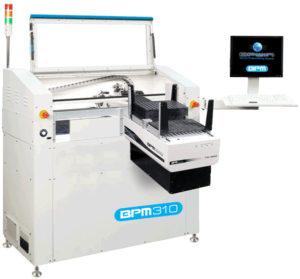 The BPM310, BPM Microsystems’ 10th Generation Automated Programmer, is expertly engineered for maximum throughput and adaptability. It boasts up to 6 fully universal programming sites, each with the capacity to host up to 8 sockets. This level of parallelism positions the BPM310 to deliver exceptional programming times, all within a remarkably compact footprint.
The BPM310, BPM Microsystems’ 10th Generation Automated Programmer, is expertly engineered for maximum throughput and adaptability. It boasts up to 6 fully universal programming sites, each with the capacity to host up to 8 sockets. This level of parallelism positions the BPM310 to deliver exceptional programming times, all within a remarkably compact footprint.
The BPM310 comes equipped with cutting-edge features such as the proprietary WhisperTeach™ for automated z-height teaching, BPM.NCRYPT for secure data handling, and real-time vision alignment for accurate device placement. It supports a broad spectrum of devices, ranging from Universal Flash Storage (UFS) and complex microcontrollers to Flash Memory. Moreover, it can proficiently program devices of various dimensions, from the smallest chip-scale packages (CSPs) to the largest Quad Flat Packages (QFPs), all at impressive speeds.
Interactive Demonstrations and Tailored Consultations
Attendees have the opportunity to schedule a live demonstration to witness the BPM310’s capabilities in action or to arrange a meeting to discuss their specific needs and challenges. BPM’s representatives, including Colin Harper, and Director of Sales, Penny Santhanam, Senior Director of Customer Success, will be on hand to provide insights and high-level dialogue.
SMTconnect is a unique forum for the engineering community to engage with the technologies shaping the future of microelectronic assemblies and systems. It’s a platform for gaining insights, initiating business deals, and advancing education in this rapidly evolving field. For more details, please reach out to the BPM Microsystems team.

by Scott Bronstad | Mar 14, 2023 | Announcements, Events, News, Trade Shows
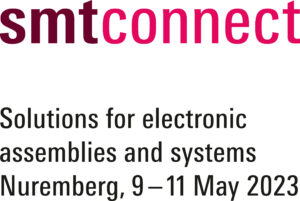 BPM Microsystems, a leading provider of programming solutions, is proud to announce its participation at SMTConnect 2023 in Nuremberg, Germany from May 9-11, 2023. BPM Microsystems will be showcasing its latest innovation, the BPM310 Automated Programming System, at Hall 4, Stand 147, in partnership with their European Distributor, Adaptsys, Ltd.
BPM Microsystems, a leading provider of programming solutions, is proud to announce its participation at SMTConnect 2023 in Nuremberg, Germany from May 9-11, 2023. BPM Microsystems will be showcasing its latest innovation, the BPM310 Automated Programming System, at Hall 4, Stand 147, in partnership with their European Distributor, Adaptsys, Ltd.
BPM Microsystems is demonstrating its latest innovation in automated programming technology, the BPM310. This 10th Generation Programmer boasts up to 6 fully universal programming sites with up to 48 sockets, providing the fastest programming times while occupying the smallest footprint. Advanced features such as WhisperTeach™, BPM.NCRYPT, and on-the-fly vision alignment are also included. With true universal support, the BPM310 can program UFS, Microcontrollers, Memory, and Complex Devices to support a wide range of chip-scale packages and QFPs at unparalleled speeds. The BPM310 is set to revolutionize the industry with its cutting-edge features and performance.
“We are excited to showcase the BPM310 Automated Programming System at SMTConnect 2023,” says William White, Founder and CEO of BPM Microsystems. “Our latest innovation is a testament to our commitment to developing cutting-edge technology that meets the evolving needs of our customers. The BPM310 offers unmatched speed, precision, and versatility, making it the ideal solution for high-volume programming applications.”
Adaptsys, BPM Microsystems’ European distributor, will be on hand to provide demonstrations and technical support throughout the event. For the past 20+ years, Adaptsys has had a strong reputation for providing top-notch programming solutions and support services to customers across Europe.
“We are pleased to be joining BPM Microsystems at SMTConnect 2023 to showcase the BPM310 Automated Programming System,” says James Cawkell, General Manager at Adaptsys. “Our team has extensive experience in programming technology, and we are committed to providing the highest level of support to our customers. We look forward to showcasing this new technology and meeting with customers.”
SMTConnect is a premier event for the electronics manufacturing industry, attracting attendees from around the world to showcase the latest technologies and innovations. BPM Microsystems and Adaptsys will be among the exhibitors showcasing their latest solutions and services.
About BPM Microsystems
BPM Microsystems is a leading provider of programming solutions for the electronics manufacturing industry. With over 30 years of experience, BPM Microsystems has a proven track record of delivering reliable and high-performance programming solutions that help customers optimize their production processes. The company offers a complete suite of offline programming solutions, including manual and automated programming systems, algorithms, software, adapters, and accessories.
About Adaptsys
Adaptsys is a leading provider of programming solutions and support services for the electronics manufacturing industry. With over 20 years of experience, Adaptsys has a strong reputation for delivering reliable and high-performance programming solutions to customers across Europe. The company offers a wide range of products and services, including programming equipment, software, and technical support.
For more information, visit BPM Microsystems and Adaptsys websites or stop by Hall 4, Stand 147 at SMTConnect 2023 to see the BPM310 Automated Programming System in action.
Go to Event Page | Sign up for One-on-One Demo
https://www.bpmmicro.com
https://www.adaptsys.com
https://smt.mesago.com/nuremberg/en.html
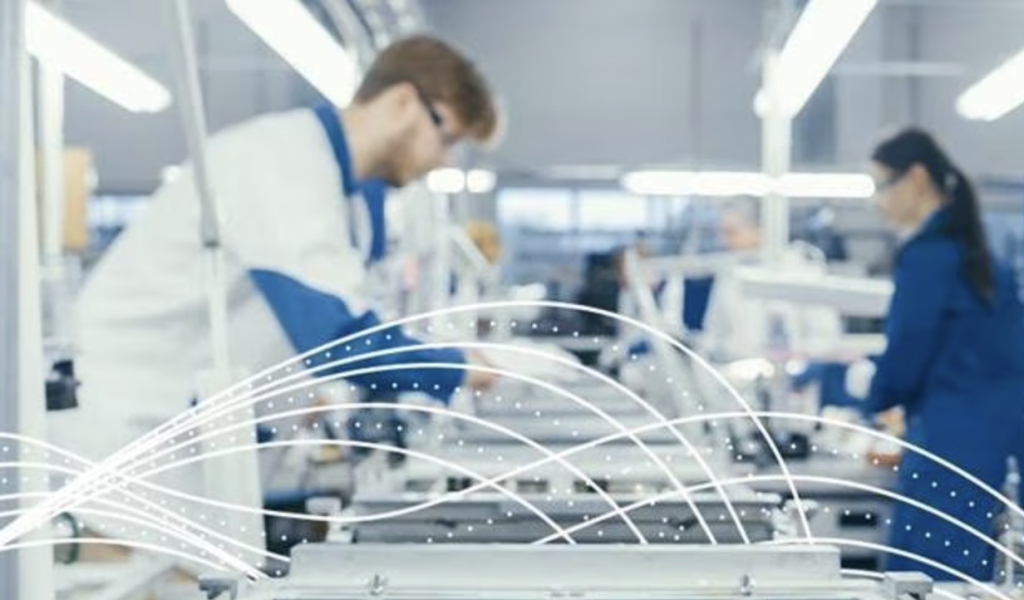
by Scott Bronstad | Feb 28, 2023 | Announcements, Automotive, News
Global SMT & Packaging Magazine is reporting that Flex, a leading global manufacturer, has opened a new learning center in Jalisco, Mexico to provide advanced manufacturing skills training to over 2,000 employees annually. This initiative will support the company’s automotive operations and accelerate the next generation of mobility. The learning center offers training on surface mount technology, robotic assembly, and automated optical inspection, enabling employees to advance their skills and foster a learn-and-adapt environment. With a commitment to investing in its employees, Flex is positioning itself to enable innovation and drive growth in the automotive industry.
To read the full article on how Flex is investing in automotive operations, click here.
More News from Global SMT
https://www.globalsmt.net/world-news/us-led-semiconductor-alliance-setting-up-early-warning-system-to-protect-supply-chains/
More Articles
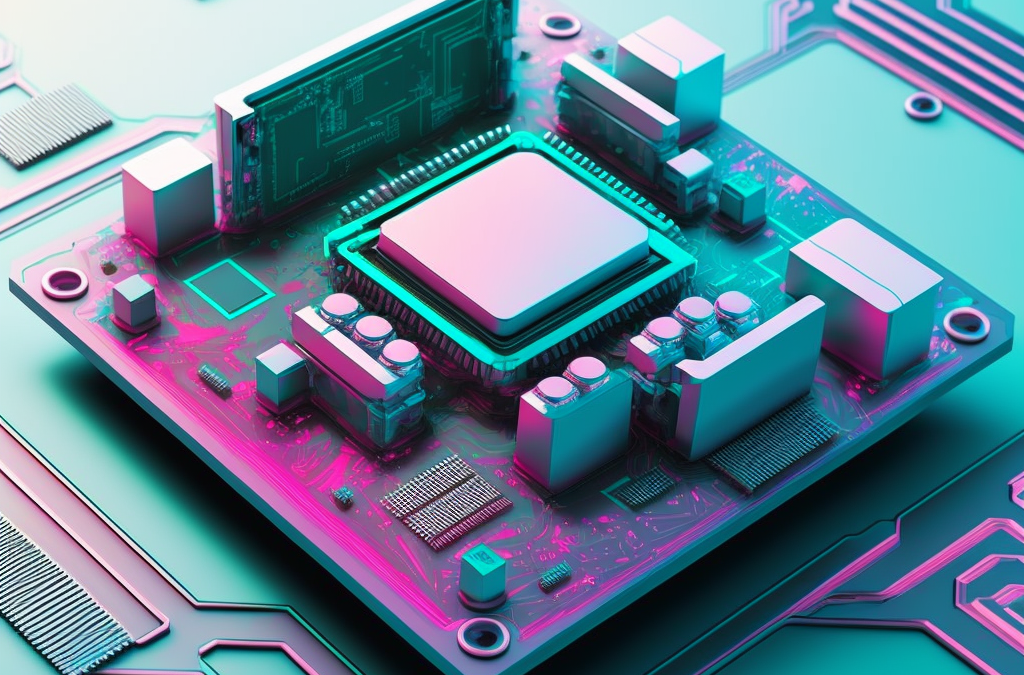
by Scott Bronstad | Feb 22, 2023 | How To, New Device Support, News, Technology
Unlocking Faster Turnaround Times
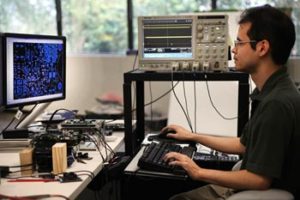 Device Support Engineers are crucial to the development of accurate and reliable programming support for programmable devices. Their role involves researching the device’s architecture, understanding its programming requirements, and developing algorithms to program the device. Here’s a closer look at the key responsibilities and skills required of DS engineers:
Device Support Engineers are crucial to the development of accurate and reliable programming support for programmable devices. Their role involves researching the device’s architecture, understanding its programming requirements, and developing algorithms to program the device. Here’s a closer look at the key responsibilities and skills required of DS engineers:
Responsibilities of DS Engineers
- Research device specifications: DS engineers must research and understand the specifications of the device to determine its programming requirements. They must analyze the device’s architecture and functionality to develop accurate and reliable support.
- Develop algorithms for programming devices: DS engineers use their knowledge of programming languages, scripting, and automation tools to develop algorithms for programming semiconductor devices. They write code optimized for performance and accuracy based on the device’s architecture and functionality.
- Collaborate with other teams: DS engineers work closely with hardware and software engineers to troubleshoot issues and ensure that the device functions correctly. They collaborate to ensure that the device meets performance specifications.
Skills Required of DS Engineers
- Programming proficiency: DS engineers must be proficient in programming languages such as C, C++, Python, etc. They must be familiar with scripting and automation tools to optimize the programming process.
- Analytical and problem-solving skills: DS engineers must have strong analytical and problem-solving skills to identify the root cause of issues that arise during the programming process. They must be able to develop solutions to fix problems (“bugs”) quickly.
- Communication and collaboration skills: DS engineers must have excellent communication and collaboration skills to work effectively with other teams. They must be able to communicate complex technical information effectively and work collaboratively to ensure the device functions correctly.
Investing in DS Engineers
Companies that invest in developing their device support engineers can develop accurate and reliable support faster and more efficiently, leading to a competitive advantage. With new devices and technologies constantly emerging, DS engineers must continuously stay up-to-date with the latest programming languages, tools, and hardware platforms to adapt quickly to new development environments and technologies.
BPM has invested heavily in developing its DS engineer teams, doubling resources over the last 2 years. Becoming proficient in this role can take months of on-the-job training, working with other more experienced engineers. BPM’s investment is working: development times for average complexity projects have dropped from 10 or more weeks to an average of 2 to 4 weeks!
Conclusion
Device support engineers play a critical role in developing accurate and reliable support for programmable devices. They must have a deep understanding of the device’s architecture and functionality, as well as proficiency in programming languages, analytical and problem-solving skills, and communication and collaboration skills. Companies that invest in developing their DS engineers can develop accurate and reliable support faster and more efficiently, leading to a competitive advantage in the market.
Mastering eMMC Device Programming | White Paper: Semiconductor Device programming | Production-Level Support from BPM Microsystems | Apply for BPM Software Engineer
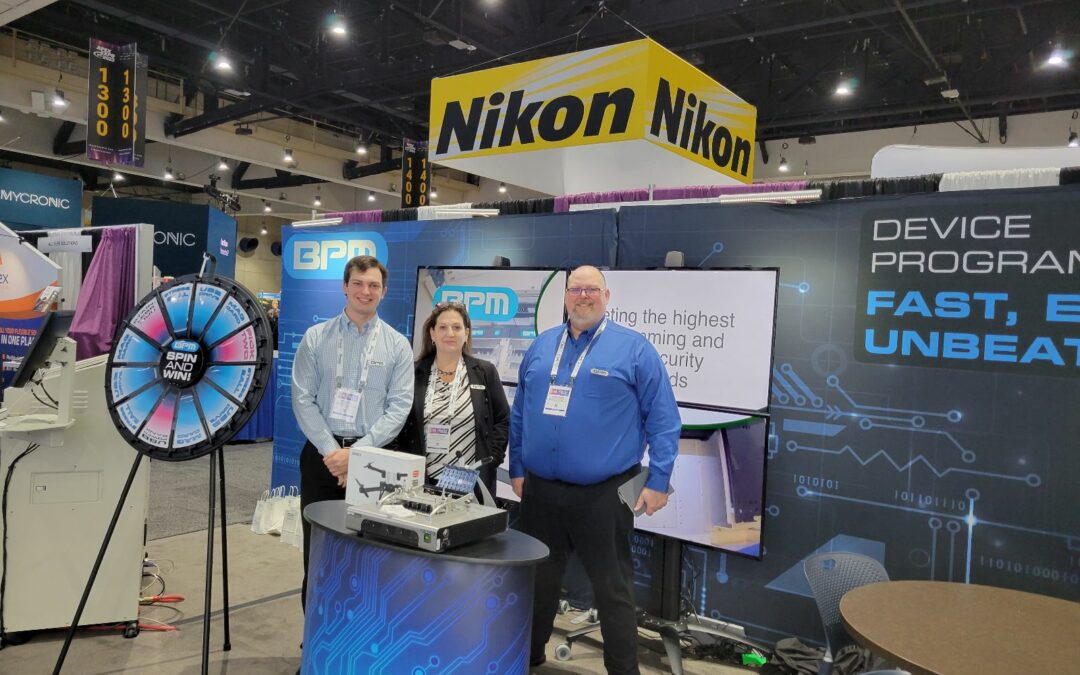
by Scott Bronstad | Jan 25, 2023 | Announcements, Events, News, Trade Shows
San Diego, CA – January 24, 2023 – BPM Microsystems, a leading provider of automated programming systems, is pleased to announce a great first day at the
APEX Expo 2023, taking place in San Diego from January 24th to January 26th.
BPM Microsystems can be found at Booth 1219, where they will be showcasing their latest offering, the BPM310 Automated Programming System. The company has reported a great first day at the expo, with 55 documented visitors to the booth and 6 machine demonstrations of the BPM310 system.
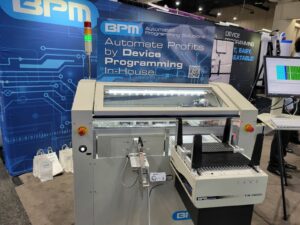 “We are thrilled to be participating in this year’s APEX Expo and to have the opportunity to showcase our innovative technology to such a large and diverse audience,” says Colin Harper, Director of Sales and Product Management for BPM Microsystems. “We would like to extend our congratulations to the team for their hard work in making this event such a success.”
“We are thrilled to be participating in this year’s APEX Expo and to have the opportunity to showcase our innovative technology to such a large and diverse audience,” says Colin Harper, Director of Sales and Product Management for BPM Microsystems. “We would like to extend our congratulations to the team for their hard work in making this event such a success.”
BPM Microsystems invites all attendees to stop by booth 1219 to see the BPM310 Automated Programming System in action and to speak with their team of experts. To schedule a personal demonstration, click here (hurry, limited availability)
For more information on BPM Microsystems and the BPM310 Automated Programming System, click here.
Global SMT Live at APEX Expo 2023

by Scott Bronstad | Jan 4, 2023 | News
According to Global SMT, the Semiconductor Industry Association (SIA) noted in a report that as of May 2020, more than 40 new semiconductor ecosystem projects have been announced in the United States, including new factories, expansion of existing locations, as well as factories that supply and produce materials and production facilities. Combined, these projects are worth nearly $200 billion in private investment, reported in 16 states. All told, these new projects will create around 40,000 new high-jobs in the semiconductor fabrication market, expanding the availability of critical parts that are currently hard to get.
These projects especially affect Arizona, Connecticut, Georgia, Michigan, New York, Oregon, and Texas.
Below is a chart of development by State:
State
|
Company Name
|
City/County
|
Investment
|
Type
|
Employment (Direct)
|
| Arizona |
Intel |
Chandler |
$20 billion |
New |
3000 (2 fabs) |
| TSMC |
Phoenix |
$40 billion |
New |
4500 (2 fabs) |
| California |
Western Digital |
Fremont/San Jose |
$350 million |
Expansion |
240 |
| Florida |
SkyWater |
Osceola County |
$36.5 million |
Expansion |
220 |
| Idaho |
Micron |
Boise |
$15 billion (through 2030) |
New |
2000 |
| Indiana |
SkyWater |
West Lafayette |
$1.8 billion |
New |
750 |
| NHanced |
Odon |
$236 million |
New |
413 |
| Everspin Technologies |
Odon |
Unknown |
New |
35 |
| Trusted Semiconductor Solutions |
Odon |
$34 million |
New |
40 |
| Kansas |
Radiation Detection Technologies |
Manhattan |
$4 million |
Expansion |
30 |
| New Mexico |
Intel |
Rio Rancho |
$3.5 billion |
Expansion |
700 |
| New York |
Micron |
Clay |
$20 billion ($100B over 20 years) |
New |
9000 (4 fabs) |
| Global Foundries |
Malta |
$1 billion |
Expansion |
1000 |
| North Carolina |
Wolfspeed |
Chatham County |
$5 billion (over 10 years) |
New |
1800 |
| Ohio |
Intel |
New Albany |
$20 billion ($100B over 10 years) |
New |
3000 (2 fabs) |
| Oregon |
Analog Devices |
Beaverton |
$1 billion |
Expansion |
280 |
| Rogue Valley Microdevices |
Medford |
$44 million |
New |
Unknown |
| Texas |
Samsung |
Taylor |
$17 billion |
New |
2000 |
| Texas Instruments |
Sherman |
$30 billion (through 2030) |
New |
3000 (4 fabs) |
| Texas Instruments |
Richardson |
$6 billion |
Expansion |
800 |
| NXP |
Austin/TBD |
$2.6 billion |
Expansion |
800 |
| Utah |
Texas Instruments |
Lehi |
$3 billion |
Expansion |
1100 |
| TOTAL |
|
|
$186.6 billion
(up to $346.6 billion) |
|
34,708 jobs |
Read more here.

 The BPM310, BPM Microsystems’ 10th Generation Automated Programmer, is expertly engineered for maximum throughput and adaptability. It boasts up to 6 fully universal programming sites, each with the capacity to host up to 8 sockets. This level of parallelism positions the BPM310 to deliver exceptional programming times, all within a remarkably compact footprint.
The BPM310, BPM Microsystems’ 10th Generation Automated Programmer, is expertly engineered for maximum throughput and adaptability. It boasts up to 6 fully universal programming sites, each with the capacity to host up to 8 sockets. This level of parallelism positions the BPM310 to deliver exceptional programming times, all within a remarkably compact footprint.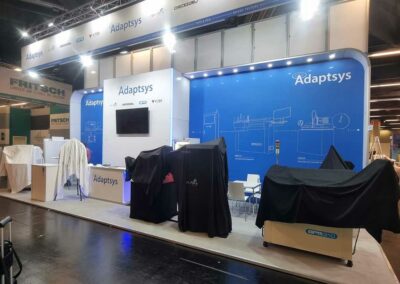
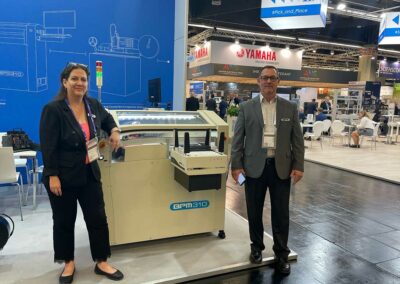
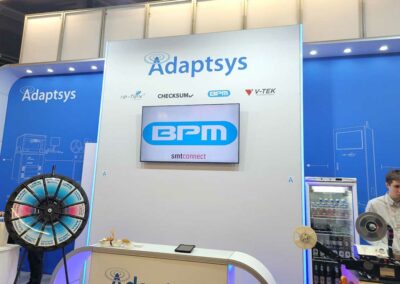
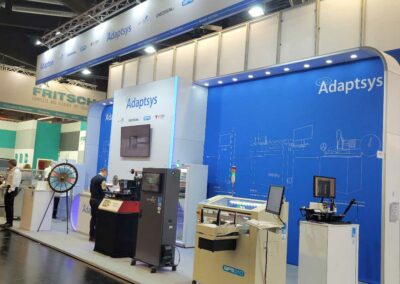
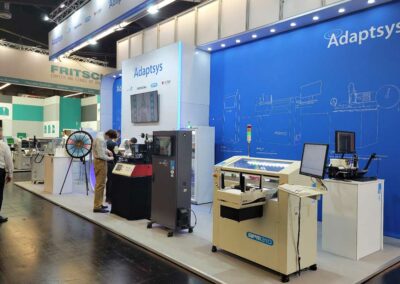
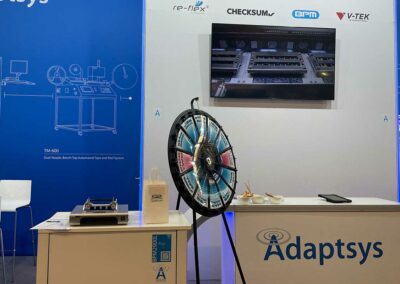
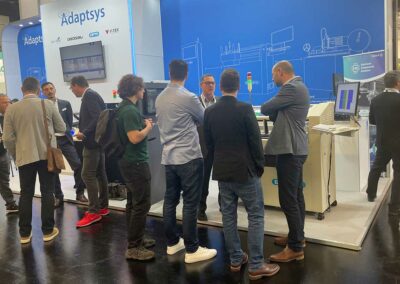

 BPM Microsystems, a leading provider of programming solutions, is proud to announce its participation at SMTConnect 2023 in Nuremberg, Germany from May 9-11, 2023. BPM Microsystems will be showcasing its latest innovation, the BPM310 Automated Programming System, at Hall 4, Stand 147, in partnership with their European Distributor,
BPM Microsystems, a leading provider of programming solutions, is proud to announce its participation at SMTConnect 2023 in Nuremberg, Germany from May 9-11, 2023. BPM Microsystems will be showcasing its latest innovation, the BPM310 Automated Programming System, at Hall 4, Stand 147, in partnership with their European Distributor, 
 Device Support Engineers are crucial to the development of accurate and reliable programming support for programmable devices. Their role involves researching the device’s architecture, understanding its programming requirements, and developing algorithms to program the device. Here’s a closer look at the key responsibilities and skills required of DS engineers:
Device Support Engineers are crucial to the development of accurate and reliable programming support for programmable devices. Their role involves researching the device’s architecture, understanding its programming requirements, and developing algorithms to program the device. Here’s a closer look at the key responsibilities and skills required of DS engineers:
 “We are thrilled to be participating in this year’s APEX Expo and to have the opportunity to showcase our innovative technology to such a large and diverse audience,” says Colin Harper, Director of Sales and Product Management for BPM Microsystems. “We would like to extend our congratulations to the team for their hard work in making this event such a success.”
“We are thrilled to be participating in this year’s APEX Expo and to have the opportunity to showcase our innovative technology to such a large and diverse audience,” says Colin Harper, Director of Sales and Product Management for BPM Microsystems. “We would like to extend our congratulations to the team for their hard work in making this event such a success.”